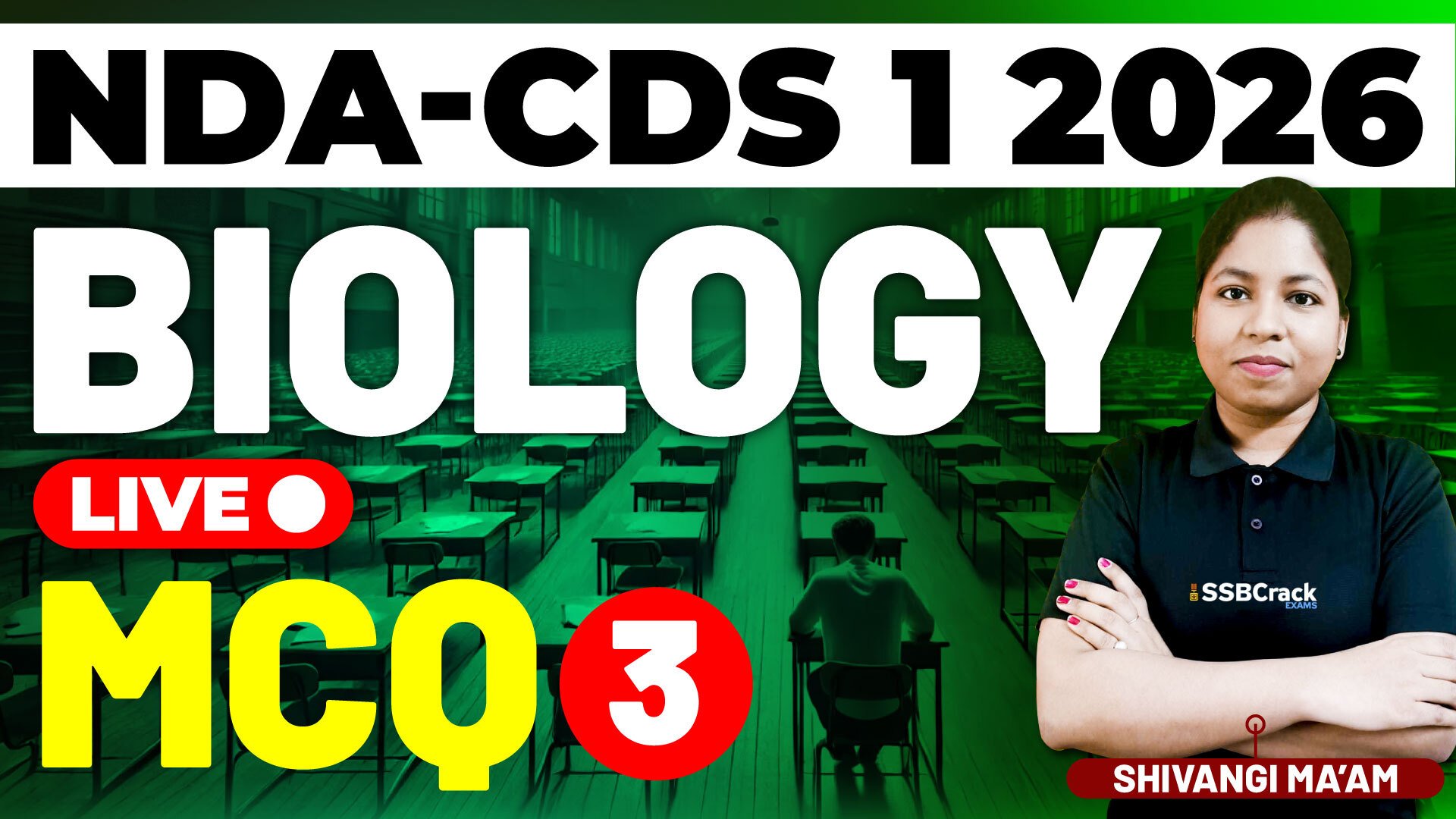The NDA (National Defence Academy) and CDS (Combined Defence Services) Examinations, conducted by the UPSC, test not only your general awareness but also your conceptual understanding of science, including Biology. For the NDA/CDS 1 2026 exam, mastering key Biology topics such as Plant Physiology is crucial since direct and conceptual MCQs are frequently asked from this area.
This session (Class 3) focuses on Plant Physiology, emphasizing the fundamental life processes of plants—how they are organized, how they obtain and utilize energy, and how they sustain life through respiration and photosynthesis.
Main Subtopics Covered
1. Plant Tissues
- Definition & Classification: Types of plant tissues – Meristematic and Permanent tissues.
- Meristematic Tissues: Apical, intercalary, and lateral meristems – their functions in plant growth.
- Permanent Tissues: Simple (parenchyma, collenchyma, sclerenchyma) and complex tissues (xylem, phloem).
- Functions & Differences between meristematic and permanent tissues.
- MCQ Focus Areas: Structure, examples, and characteristic functions of each tissue type.
2. Respiration in Plants
- Concept of Plant Respiration: How plants oxidize food to release energy.
- Types of Respiration: Aerobic vs. Anaerobic.
- Gaseous Exchange in Plants: Role of stomata, lenticels.
- Steps of Respiration: Glycolysis, Krebs cycle, and Electron Transport Chain (ETC).
- Energy Yield and Importance: ATP formation and its significance.
- MCQ Focus Areas: Site of each reaction, energy output, and differences between respiration types.
3. Photosynthesis
- Definition & Importance: Process by which green plants prepare their food using sunlight.
- Raw Materials & End Products: CO₂, H₂O, sunlight → Glucose + O₂.
- Pigments & Light Absorption: Role of chlorophyll and accessory pigments.
- Mechanism: Light-dependent and light-independent (Calvin Cycle) reactions.
- Factors Affecting Photosynthesis: Light intensity, CO₂ concentration, temperature, and water availability.
- MCQ Focus Areas: Equations, site of reaction (chloroplast), limiting factors, and importance to the biosphere.
Conclusion
Understanding plant physiology provides a foundation for appreciating how plants function and sustain all life on Earth. For the NDA/CDS 1 2026 examination, students should focus on conceptual clarity, definitions, differences, and key processes, as MCQs often test both factual knowledge and understanding of mechanisms.
This session will reinforce critical plant physiology concepts through targeted MCQs, helping aspirants strengthen their command over Biology for maximum exam performance.

















